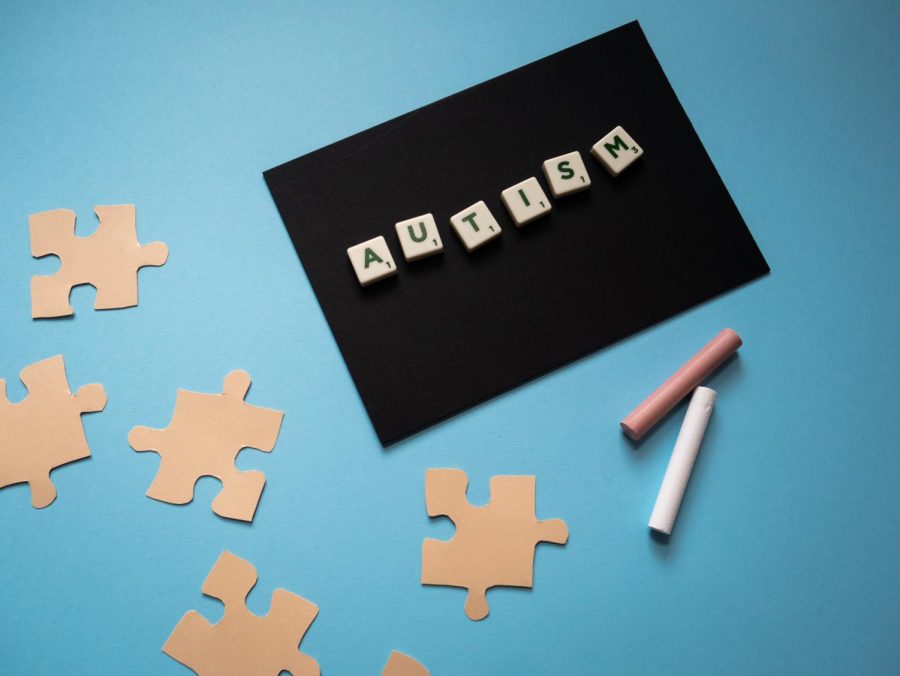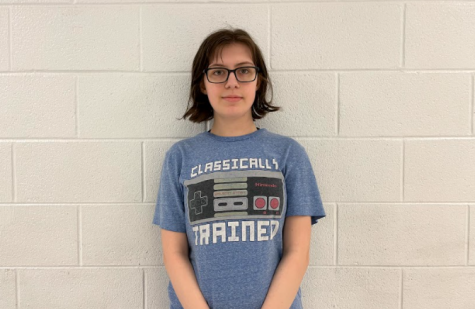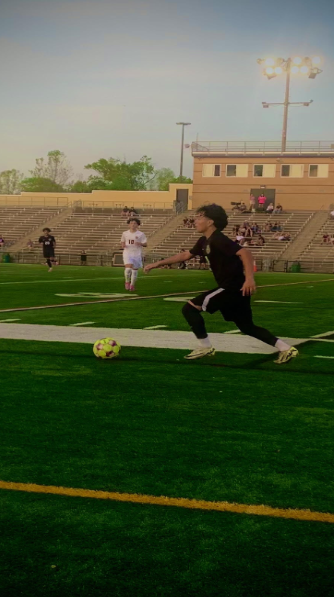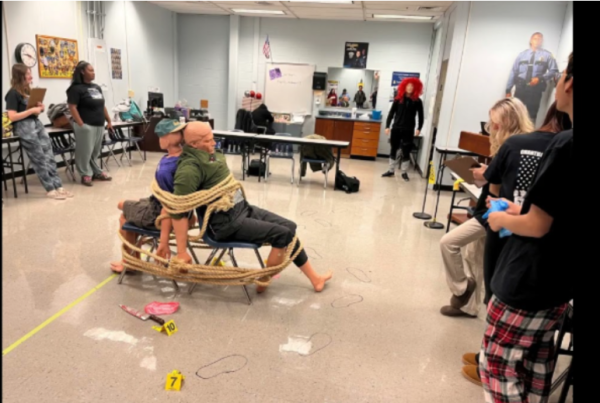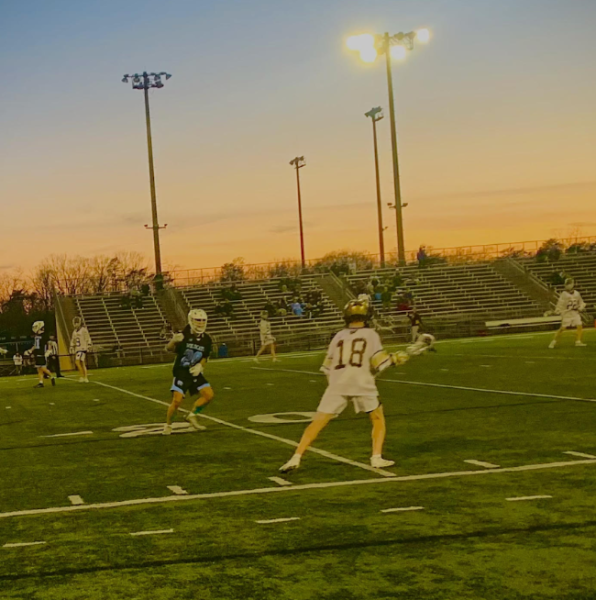NEURODIVERGENT
Photo courtesy of Pexels.com
Autism spelled out for all to see.
In the 1800s, Walt Whitman—a.k.a. “Our Great American Poet” –used his voice to celebrate our nation’s diversity. Proclaiming, “I Hear America Singing,” Whitman painted vivid pictures of this melting pot we call America. His verses capture an ideal deeply embedded in our creed: that we all have a place in the choir.
Whitman also conveyed a passionate awareness that the journey involves challenges. Our “song” is often an ode to overcoming those challenges.
This column will provide a voice to Westfield students and staff who wish to share their trials and triumphs, paying tribute to our collective spirit of resilience.
“Greetings to my fellow members of the elated class of 2022 and to the relieved parents, cheering siblings, and dear friends who supported us. Salutations to the caring faculty, administrators, and staff who fed our brains and nurtured our souls. I would also like to thank my fellow valedictorians—Emily Curran ’22, Sofia Frasz ’22, Charlie Mellin ’22, and Jessika Linnemeyer ’22—for giving me the honor of addressing you.”
Elizabeth Bonker, the speaker of the quote above, appeared in the news recently. She was a valedictorian at her college and was unanimously chosen by her other four valedictorians to give a commencement speech to a group of 529 graduating students. Her speech was incredibly moving to those now entering a new chapter in their lives, but what made it so special was HOW she delivered it.
She used a text-to-speech computer, as she was autistic, and had been mute since the age of 15.
According to the CDC, Autism Spectrum Disorder (or ASD) is a neurodevelopmental disorder commonly believed to be caused by genetics. It is characterized by a lacking ability to pick up on social cues, having repetitive behaviors, hyperfocusing on certain interests, and a difficulty when dealing with sensory stimuli, particularly textures, colors and sound. ASD, as the name suggests, is a spectrum, and those that have it can vary widely. Some may have incredible speaking ability, while others may be non-verbal. Some will need help throughout their life, while some don’t need help at all once they’ve matured.
My name is Ava Kiera Salzgeber. I am, at the time of this writing, 18 years old. I am about to graduate from high school and go to the college of NOVA, finding a career to take myself.
I am also autistic. A high-functioning autistic, but autistic nonetheless. When I was younger I didn’t show an interest in faces like others, and I was tuned out of what was happening most of the time. Even now, I have difficulty articulating my thoughts into words, and I have a hard time focusing when there’s an awful lot of noise around me. But even now I see people misunderstanding what autism is, and I wish to clarify it for my community with the best way I know how. Writing my thoughts down on a page..
I have noticed the behaviors typically associated with autism in myself. I remember when I was younger, when the room got annoyingly loud, I’d scream in an attempt to get them all to be quiet, because it bothered me very much. I had an affinity for very soft things because of how they felt, making little plushie forts out of stuffed bears when I was in kindergarten or the want to hug a stuffed pumpkin during elementary school music class.
I remember disliking people looking at me, which remains to my dislike of standing in front of the classroom. I remember feeling rather isolated in my interests, that I’d focus on so much to the point of spacing out into my own thoughts. I remember getting frustrated with others, especially when they were frustrated with me, because the habits I fall comfortably into sent mixed signals to those who were neurotypical. It was only really with my mom that I was able to grow and come out of my shell more; I felt safe since I could come home and not talk to anyone. It was where I felt the safest.
To get more of a perspective on how my life was like to the eyes of someone not on the spectrum, I asked Tracy Salzgeber, Microsoft Engineer and my mother, what her experience was like raising me, “My experience started when I realized (Ava) was very different from her sister. She didn’t show an interest in faces, and she seemed oddly tuned out of things going on around her. After that, I tried to learn about it but NEVER judge her. There was no way to know what her autism meant for her or us, but I knew she was very intelligent. So I wasn’t scared, just very careful not to make assumptions. She’d teach me who she was in her own time.”
One thing I wish to mention about Autism is the theory that autism is caused by vaccines. Let me get this out of the way. No. Vaccines are not the cause behind autism.
While it is an understandable assumption, given that the ages that kids usually get vaccines are when they are diagnosed with autism, correlation is not causation. According to the World Health Organization, and so many peer reviewed scientific studies I literally cannot list them all here or I would go over my word count on them alone, autism and vaccines have no link. Those who have not had vaccines are just likely to be diagnosed with autism as those who have had vaccines. And sometimes autism is detected in children before any vaccine is given. The chemicals in a vaccine are there to fight diseases and vaccines are one of the most tested and studied medical inventions, and if something is wrong with them they are taken off the market incredibly quickly.
Autism and vaccines have no link, end of story.
Autism is not just some disorder that’s automatically an awful thing once you get the news. It can be simply that your child thinks differently from everyone else, and it can be that they just act slightly differently. Autistic people can create amazing things, such as the work of Albert Einstein, or Elizabeth Bonker. Autism makes you different, and that’s okay. Others just need to work on understanding us and being patient just that little bit more.
And for those who are autistic, I’d like to share some advice Salzgeber decided to share when I asked her: “For autistic people, there’s nothing wrong with you. Like the rest of us, you’re trying to figure out where you fit in and that’s okay. Lean in to your strengths and never let any perceived obstacles stop you from becoming a happy fulfilled person. You will find your way and there’s no reason you’ll be held back if you want it.”

